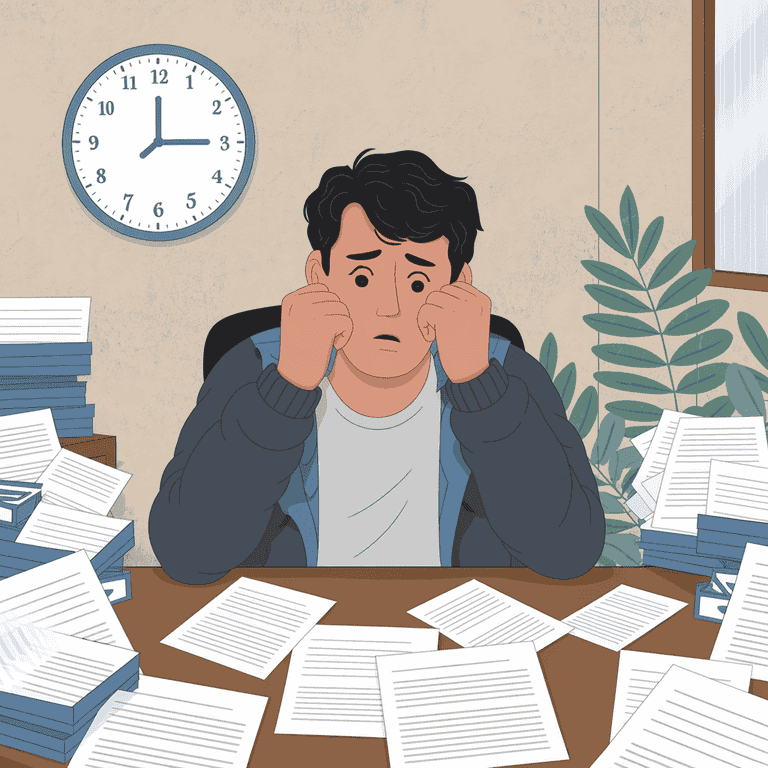A pro se divorce allows you to file for and finalize a divorce without hiring legal representation. This option is typically available in most states, including Nevada, where one spouse must be a resident for at least six weeks before filing. Self-representation can save money and give you control over the legal process, but it also burdens you with understanding complex legal procedures.
 Legal Steps Involved in a Pro Se Divorce
Legal Steps Involved in a Pro Se Divorce
In a pro se divorce, you must complete and file all necessary documents, serve your spouse, and appear in court to finalize the process. Depending on your situation, this may include filing a joint petition for divorce if both parties agree or submitting separate documents if the divorce is contested. Each step must comply with Nevada state laws.
When Can You Get Divorced Without an Attorney?
Uncontested Divorce Situations
An uncontested divorce occurs when both parties agree on critical issues such as property division, alimony, child support, and custody arrangements. A lawyer may not be necessary if you and your spouse can agree on these matters. In this case, you must file the correct paperwork and attend the required hearings.
Simple Marriages With Few Assets or No Children
The process is often more straightforward if your marriage is short and involves minimal shared assets, no real estate, or no children. Many people in this situation successfully file without legal assistance, as fewer issues require legal mediation or court intervention.
Benefits of Self-Representation
Cost Savings
Not hiring an attorney can save significant money, especially when the divorce is uncontested. Legal fees can quickly add up, and those with relatively straightforward cases may prefer to avoid this expense.
Greater Control Over the Process
Handling your divorce allows you to control the speed and direction of your case, which can be beneficial if you want to avoid lengthy delays. However, you also assume full responsibility for handling everything properly.

When You Should Consider Hiring an Attorney
Complicated Divorce Cases
High-asset or Business-Related Divorces
Divorce can become legally complex if you and your spouse share significant assets, businesses, or retirement accounts. Ensuring a fair division of these assets often requires professional legal advice to prevent financial loss or the mishandling of essential documents. An attorney can help with the valuation and distribution of marital property, which can be tricky to handle alone.
Custody and Child Support Disputes
When children are involved, divorce becomes more complicated. Disputes over custody, visitation rights, or child support can escalate quickly, requiring a detailed understanding of Nevada’s family law system. Hiring an attorney in such cases is recommended to safeguard your parental rights and the best interests of your children.
Spousal Support (Alimony) Issues
Determining spousal support is often a contentious part of divorce negotiations. If one party seeks alimony, an attorney can assist with calculating reasonable support based on the length of the marriage, the financial status of each spouse, and other factors. Without legal guidance, you may end up with an unfair financial arrangement.
Legal Mistakes That Can Happen Without an Attorney
Incorrect or Incomplete Paperwork
Filing errors, missed deadlines, or incomplete documents can result in delays or the rejection of your case. Even simple clerical mistakes can significantly impact the timeline of your divorce. Attorneys ensure that paperwork is completed correctly and submitted on time.
Failing to Secure Your Legal Rights
Without an attorney, you may overlook critical legal rights or fail to account for future financial considerations, like pension rights or tax consequences. An experienced attorney will ensure you don’t miss any vital details during negotiations or when drafting a final divorce agreement.


How Attorneys Improve the Divorce Process
Legal Expertise and Advocacy
An attorney acts as your advocate, representing your interests during mediation or litigation. They are equipped to handle the complex legal language and strategies required to negotiate favorable settlements or argue your case before a judge.
Navigating Legal Complexities and Court Procedures
A divorce lawyer understands the intricacies of divorce law, which includes local rules, filing procedures, and state-specific regulations. They also have the experience necessary to deal with any complications that arise, such as hidden assets or contested custody arrangements.
Emotional Support and Objectivity
Divorce can be highly emotional, and those emotions can cloud judgment. Attorneys provide an objective viewpoint and help make rational decisions based on facts and legal standards rather than emotions. They can also handle the stressful negotiations and communications with your spouse, giving you space to focus on personal recovery.
Cost vs. Benefit: Is an Attorney Worth It?
Weighing the Financial Costs
Divorce Lawyer Fees
Attorney fees can vary depending on the complexity of the case, the lawyer’s experience, and the location of your divorce. While it may seem expensive, hiring an attorney often pays off by preventing mistakes or unfair settlements.
Hidden Costs of Self-Representation
Without legal representation, you may overlook hidden costs, such as future financial obligations, alimony considerations, or tax implications that could affect your long-term financial well-being. An attorney ensures you account for all aspects of your financial and legal situation.
Long-Term Benefits of Legal Representation
By securing an attorney, you invest in your future financial and legal stability. While self-representation may save money upfront, the long-term benefits of legal guidance can far outweigh the costs, especially in more complex or contentious cases.

Whether or not you need an attorney depends on the complexity of your case. You can navigate the process without legal assistance in straightforward, uncontested divorces. However, if your divorce involves significant assets, children, or contested issues, hiring an attorney ensures that your legal rights are protected, your paperwork is handled correctly, and the process moves smoothly. An attorney offers essential expertise and peace of mind during an otherwise difficult time.

What are the main differences between a contested and uncontested divorce?
An uncontested divorce means both parties agree on all major issues like asset division, child custody, and alimony, making the process simpler and faster. A contested divorce occurs when the parties cannot reach an agreement, and the court must resolve disputes, often requiring legal representation.
Can I change my mind about self-representation after starting the divorce process?
Yes, you can hire an attorney at any point during the divorce process, even if you initially chose self-representation. If you find the legal process overwhelming or if complications arise, it’s never too late to seek professional legal help.
What happens if my spouse has an attorney and I do not?
If your spouse has legal representation and you do not, you may find yourself at a disadvantage, especially in contested matters like property division or child custody. Your spouse’s attorney will be advocating for their best interests, which could lead to an unfavorable outcome for you if you are not adequately prepared.
How long does it take to finalize a divorce without an attorney?
The timeline for a divorce varies depending on the complexity of the case and whether it’s uncontested or contested. Uncontested divorces generally move faster, and the timeline can be shortened if all paperwork is correctly filed. However, mistakes in self-representation can cause delays, so it’s important to stay organized.
Can a mediator replace the need for an attorney?
Mediation is a useful tool for resolving disputes and reaching agreements outside of court, but a mediator cannot provide legal advice. If you choose mediation, you may still want to consult with an attorney to ensure the agreement protects your rights and complies with Nevada law.
Is hiring an attorney necessary if my spouse and I agree on everything?
Even if you agree on all terms, having an attorney review the divorce agreement can ensure that it’s legally binding and that no important details have been overlooked. An attorney can help ensure that the agreement is enforceable and that it meets all legal requirements.
Are there special considerations for military divorces?
Military divorces can involve unique legal issues, such as the division of military pensions and benefits, residency requirements, and compliance with federal laws. If you or your spouse is in the military, consulting with an attorney familiar with military divorce laws is recommended.
Can I get divorced if I can’t locate my spouse?
Yes, in Nevada, you can still file for divorce even if you cannot locate your spouse. You will need to take additional steps, such as publishing a notice in a local newspaper, before the court can finalize the divorce. An attorney can guide you through this process to ensure all legal requirements are met.
What are the financial risks of handling my own divorce?
Self-representation can carry financial risks, especially if you overlook certain rights or financial obligations. You might miss out on assets you’re entitled to or agree to terms that negatively impact your financial future. Legal missteps can be costly in the long run, even if they save money initially.
Can a divorce attorney assist with post-divorce modifications?
Yes, if circumstances change after your divorce, such as a shift in income, relocation, or changes in child custody needs, an attorney can help you file for a modification to the original divorce agreement. This can be especially important when seeking to adjust child support or alimony.
Further Reading
It’s worth noting that our lead attorney, Molly Rosenblum Allen, Esq., isn’t just at the forefront of legal representation; she has also created an array of valuable resources to assist you during challenging times. These resources are designed to provide clarity and guidance on various aspects of divorce law. Here’s a brief overview of what you can find:
Las Vegas Divorce Attorney: This comprehensive guide offers 300 words of insight into navigating the complexities of divorce proceedings in Las Vegas. It’s a must-read for anyone seeking legal assistance in the city. Learn more
Nevada Divorce: Dive into this detailed 600-word resource to understand the specifics of getting a divorce in Nevada. This is an essential read with practical advice. Explore further
Surviving Divorce: Facing a divorce can be challenging, but this guide, spanning 450 words, offers strategies and support to help you cope during this tough time. Find support here
What Happens If You Don’t Sign Divorce Papers: This 300-word article provides clear answers and outlines the potential consequences of not signing divorce papers, a crucial read for those in such a situation. Get informed
What is a Collaborative Divorce: This 150-word resource demystifies collaborative divorce, explaining its process and benefits. Understand your options
How to Win a Divorce: Get insights into the strategies and mindsets that can influence the outcome of a divorce in this concise, 100-word read. Gain strategic insights
Switching Lawyers During Divorce: This 60-word guide offers essential advice for those considering a change in legal representation midway through the divorce process. Know the steps
How Long Does a Divorce Take in Nevada: Understand the timeline and factors that affect the duration of divorce proceedings in Nevada with this informative 100-word article. Get clarity on the timeline
High Conflict Divorce: Navigate the complexities of a high-conflict divorce with the guidance provided in this 200-word resource. Manage conflict effectively
Questions to Ask a Divorce Lawyer: Prepare for your consultation effectively with this comprehensive list of 1,000 words worth of critical questions to ask your divorce lawyer. Be prepared for your consultation
Each resource is meticulously crafted to address the specific needs and questions that arise during the divorce process. Whether you’re just starting to consider a divorce or are in the midst of one, Molly Rosenblum Allen, Esq.’s expertise and these resources can provide the guidance and support you need.

Offsite Resources You May Find Helpful
Here are seven offsite resources that provide information about whether or not you need an attorney for a divorce in Nevada:
Nevada State Bar: The official site of the Nevada State Bar, providing resources about various legal topics including family law and divorce.
FindLaw: This online resource provides free legal information, a lawyer directory, and other resources on a wide range of legal topics, including divorce law in Nevada.
Justia: A platform that provides free legal information and a directory of attorneys for various legal issues, including divorce.
Avvo: This website provides a directory of lawyers, legal advice, and other resources on a broad range of legal topics, including divorce.
American Bar Association: The ABA provides a variety of resources on legal topics, including information on divorce proceedings.
LegalZoom: An online legal technology company that provides legal information and services to consumers and small businesses, including guidance on whether or not you need an attorney for a divorce.
Nolo: This website provides legal information to consumers and small businesses, including articles, blogs, FAQs, and news on family law and divorce proceedings.

What's Next?
Are you thinking of getting a divorce?
Don’t go it alone! The Rosenblum Allen Law Firm is the right choice for residents in and around Las Vegas to find a reliable law firm.
Their staff of experienced attorneys has helped countless people with their divorces, providing them with sound advice, thorough representation, and an understanding approach that considers every individual’s unique situation.
With decades of combined experience steadily guiding clients through difficult times, you can rest assured that The Rosenblum Allen Law Firm will take care of you from start to finish during this sensitive process.
So don’t just settle for any old lawyer – call us today at (702) 433-2889 and get the best legal protection available for your divorce case!




